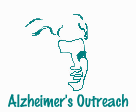 Meaningful
Activities Programming for the Person with Memory Loss
Meaningful
Activities Programming for the Person with Memory Loss
 Meaningful
Activities Programming for the Person with Memory Loss
Meaningful
Activities Programming for the Person with Memory Loss
If you would
like to print it out in plain text, click HERE
One of the most
effective ways of relating to a person with memory loss is through a meaningful,
comprehensive activities program. Effective activities programming is not
just scheduling certain activities at a certain time of day to comply with
state or federal regulations. Programming must involve every aspect of
a person's day including personal care and grooming, eating, transporting
from one place to another, one-to-one interactions, as well as planned
leisure and recreational activities. The "activity" of life goes
on 24 hours per day, seven days per week. Activities can be as simple as
making eye contact, touching, and calling the person by name (acknowledging
the resident's existence) as you go about the task of providing care. Having
the resident participate in whatever way possible with daily personal care
is a very meaningful activity.
Everyone lives to a "rhythm". Some are bright and alert in the morning. Some people are late risers and function more effectively in the afternoon and evening. During any given day, people will have times when they are "up" and times when they are "down". To help the residents function best, caregivers must know what kind of "rhythm" the residents are tuned to. Caregivers are then able to appropriately plan mental stimulation, physical stimulation, social interaction, and quiet times. When there is a lack of appropriate stimulation or too much inappropriate stimulation during the day, people will respond in a negative manner. Too much stimulation may lead to agitation, wanting to leave, and angry outbursts.
Planned activities must intertwine with activities of daily living to create a rhythm of the day. Adaption must lie with the caregivers rather than the person with AD. As the disease progresses, the person will be less and less able to adapt and learn new skills.
Another very important part of relating to a person and helping them find meaning and purpose through activities, is for the staff to be aware of the "life story" of each resident. A 'life story' describes who you are, who you were, where you have been, your likes and dislikes, abilities and limitations, personality traits, religious beliefs, cultural heritage, and customs.
Taken from; For Those Who Care, An Alzheimer's Disease Training Program
By Barbara Helm, M.A. and David Wekstein, PhD.

Hope our logo helps you find your way back to us.